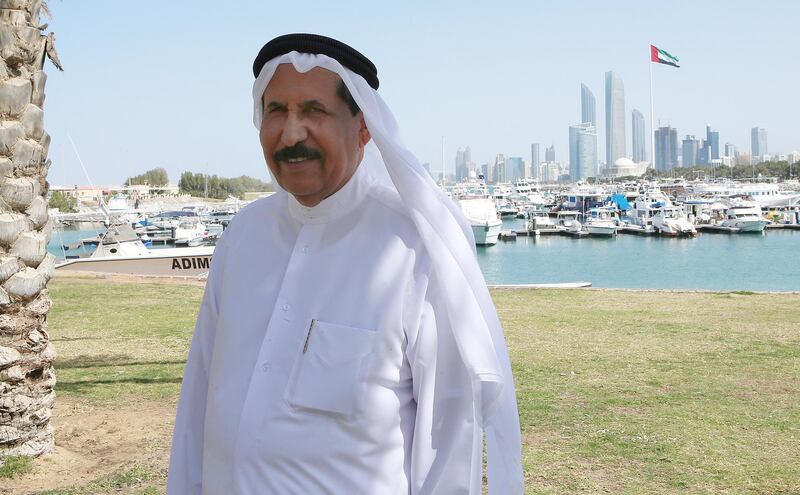It may not have been as sophisticated or organised as it is today and did not have a formal name or established headquarters, but the parliamentary concept existed within the UAE’s tribes for centuries.
“Three-hundred years ago, there were many tribes and each had an elected emir, and the emirates were not only seven, there were around fifteen of them,” said Ahmad Al Jaber, one of the members who founded the Federal National Council in 1972.
“Of course there were many issues regarding borders and sovereignty, so the locals used to meet to discuss the issues amongst themselves,” he said.
“If you go back in history you will see that democracy and consultation has existed with us since the old times, even if the titles differ today, the concept was there.
“This was driven by the original Islamic political system and Quranic verse that says: ‘and their affairs are by counsel among themselves’.”
The consultative majlises began to take a formal shape in the early 1960s when the development council was formed in Deira, Dubai.
The four-storey building comprised two chambers, one exclusively for the rulers of the different emirates — which were not united at the time — and another for ordinary members.
“We had big chambers, like the FNC today, and the best of men were part of it, they were all veterans and had rich life experiences,” said Mr Al Jaber, who was appointed member of the development council in 1964.
“Sometimes you find a person without an academic degree, but has a thorough experience,” he said.
“Some called it the reconciled emirates council and some called it the rulers council, but the official title was the development council.
“The members met on a regular basis to discuss various social topics and presented their proposals and requests from the locals of each emirate.”
The rulers of the separate emirates met in their exclusive chamber when they needed to.
Their discussions also varied between public welfare and resolving border issues between the emirates; “sometimes a British representative attended the sessions, when there was a need to avoid disputes, and sometimes he would request to attend.”
The council had little financial resources at the time, “and you would wonder where did the council get its budget from?” Mr Al Jaber said.
“Most of it was from Sheikh Zayed directly.”
At the time, UAE Founding Father Sheikh Zayed was the emir of Al Ain.
“He was of a generous nature and adopted issues that concerned the nation and its people.
“Sometimes, you would not find anything in his possession, yet if he received a guest he would borrow to show hospitality to that guest.”
The council attracted the support of Arab nations in 1962, when the former Egyptian president Jamal Abdul Nasser sent a delegation led by Mohammed Abdul Khalek Hassouna, who served as the second Secretary-General of the Arab League at the time.
“The goal was for the Arab League to assist the UAE in building roads, providing electricity, health and education … but the British government objected at the time,” Mr Al Jaber said.
“To avoid a dispute with the British, Sheikh Zayed covered all the expenses for the projects under the name of the council, and he sent a delegation to the Arab League to apologise for not being able to accept offer.”
_______________
Read more:
The FNC: The future of voting in the UAE
[ Emirati Women's Day: Women of the FNC tell of their proudest moments ]
National Editorial: FNC plays a crucial role in political life
_______________
As the years passed and the emirates united, the council evolved into the Federal National Council we know today. Sheikh Zayed inaugurated it on February 12, 1972.
“The members of the Federal National Council are all sons of the people, and they can express their opinions with ultimate freedom,” he said during his opening speech.
Since that day, the council has evolved and expanded. In 2006 the FNC introduced e-voting in the first public elections and welcomed female members. The council is expected to develop further under the 2016-2021 Parliamentary Strategy launched two years ago.







